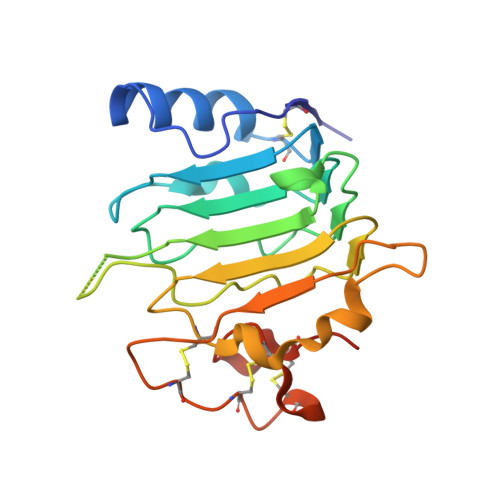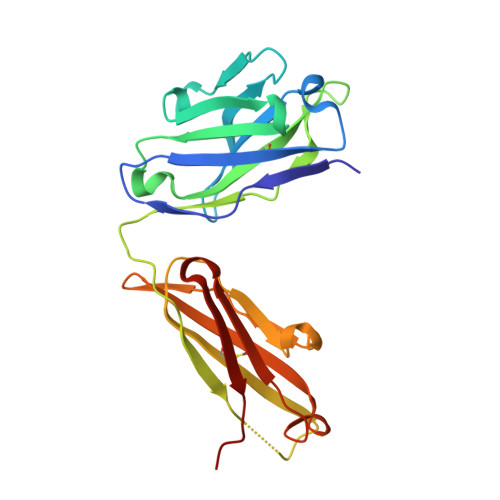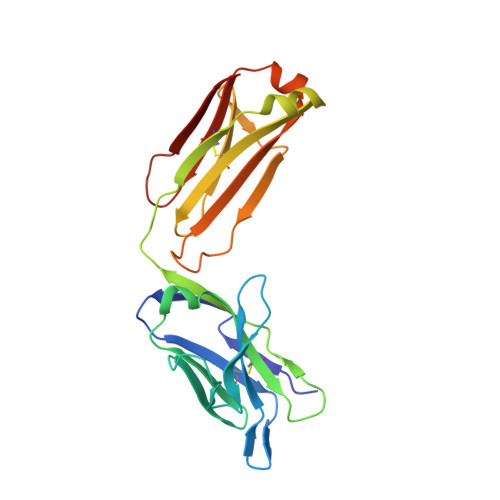Locally misfolded HER2 expressed on cancer cells is a promising target for development of cancer-specific antibodies.
Arimori, T., Mihara, E., Suzuki, H., Ohishi, T., Tanaka, T., Kaneko, M.K., Takagi, J., Kato, Y.(2024) Structure 32: 536-549.e5
- PubMed: 38460519
- DOI: https://doi.org/10.1016/j.str.2024.02.007
- Primary Citation of Related Structures:
8JYQ, 8JYR - PubMed Abstract:
Overexpression of human epidermal growth factor receptor 2 (HER2) in breast and gastric cancers is associated with a poor prognosis, making it an important therapeutic target. Here, we establish a novel cancer-specific anti-HER2 antibody, H 2 Mab-214. H 2 Mab-214 reacts with HER2 on cancer cells, but unlike the therapeutic antibody trastuzumab, it does not react with HER2 on normal cells in flow cytometry measurements. A crystal structure suggests that H 2 Mab-214 recognizes a structurally disrupted region in the HER2 domain IV, which normally forms a β-sheet. We show that this misfolding is inducible by site-directed mutagenesis mimicking the disulfide bond defects that also may occur in cancer cells, indicating that the local misfolding in the Cys-rich domain IV governs the cancer-specificity of H 2 Mab-214. Furthermore, we show that H 2 Mab-214 effectively suppresses tumor growth in xenograft mouse models. Our findings offer a potential strategy for developing cancer-specific therapeutic antibodies that target partially misfolded cell surface receptors.
- Institute for Protein Research, Osaka University, 3-2. Yamadaoka, Suita, Osaka 565-0871, Japan. Electronic address: arimori@protein.osaka-u.ac.jp.
Organizational Affiliation:



















